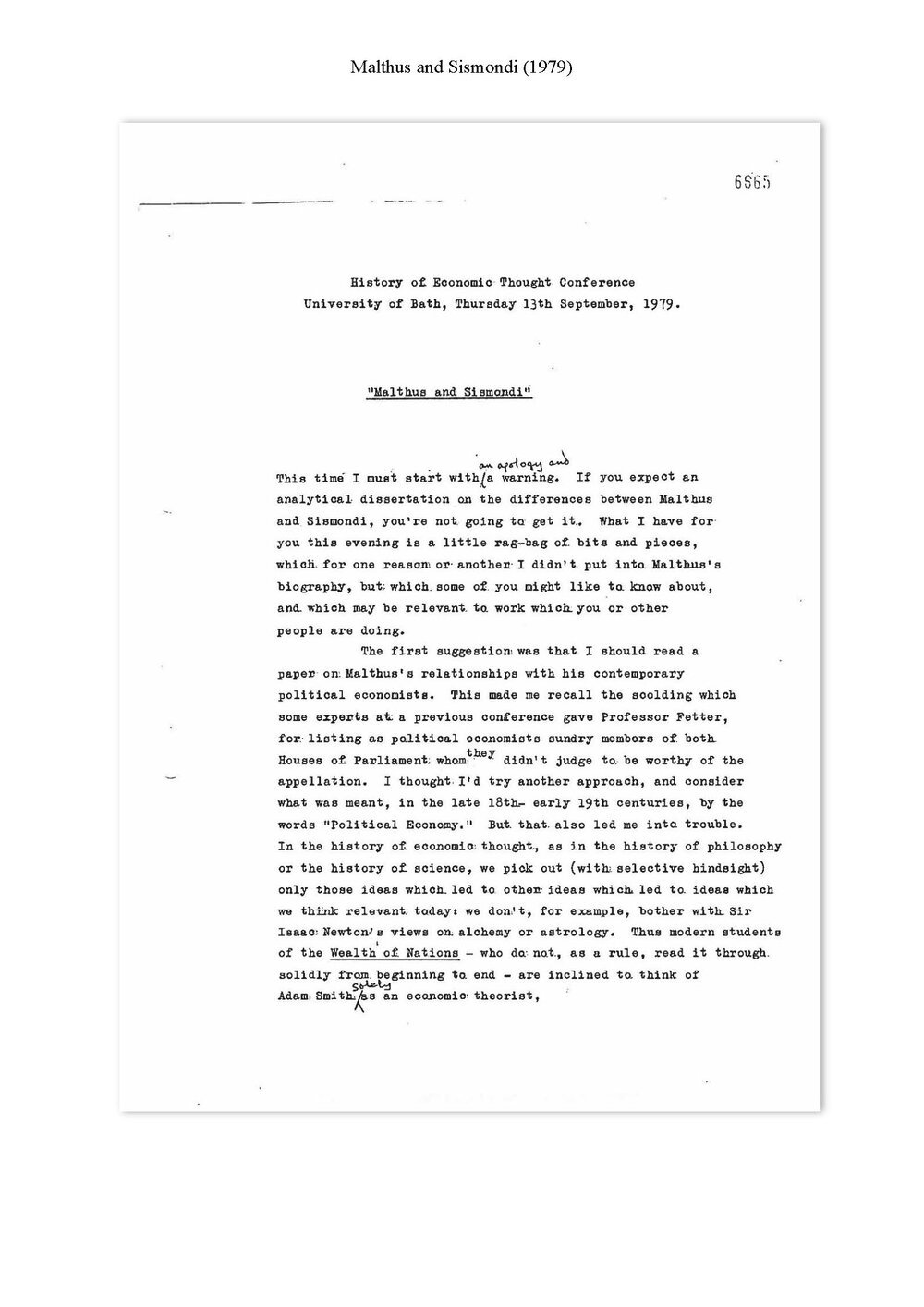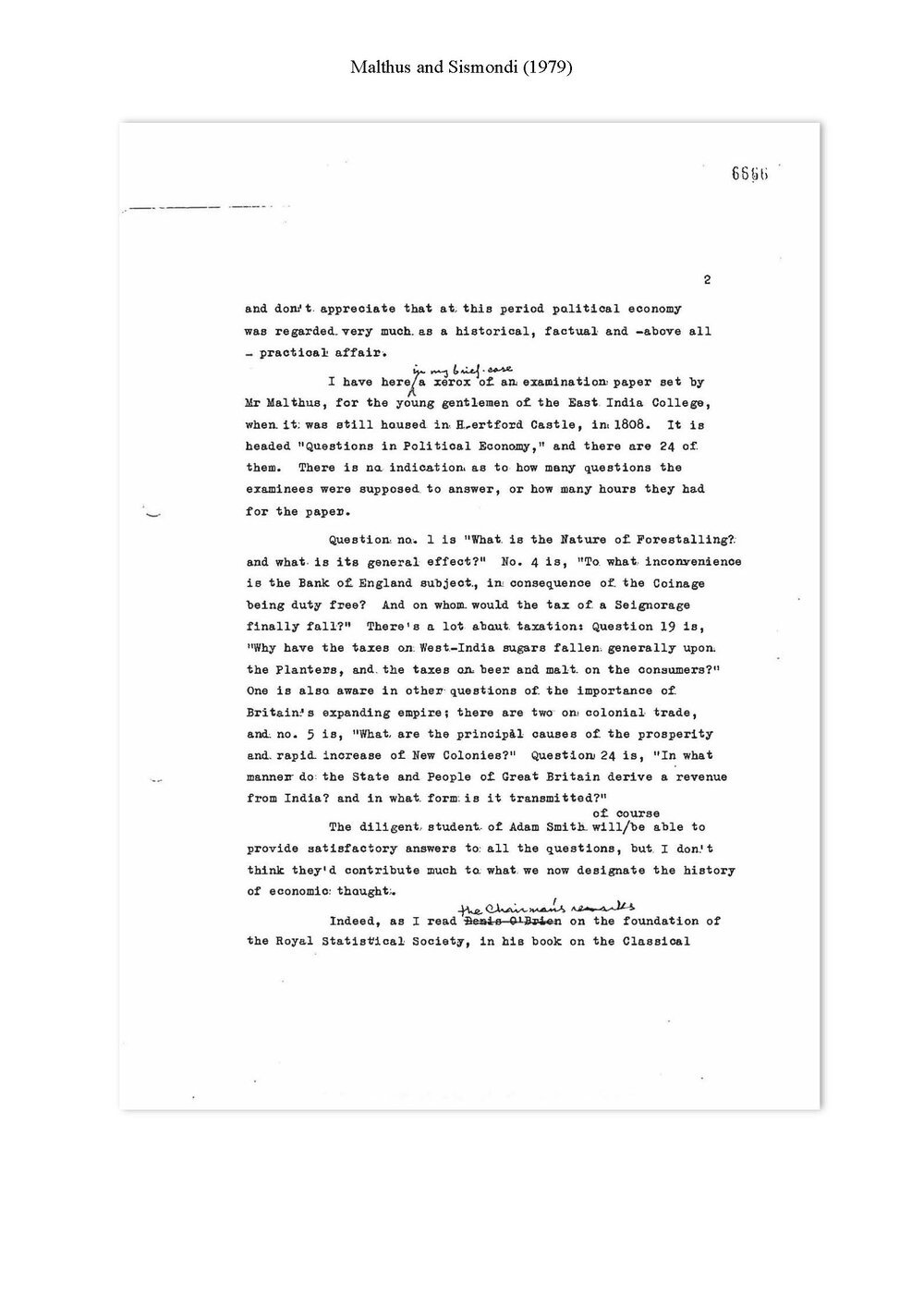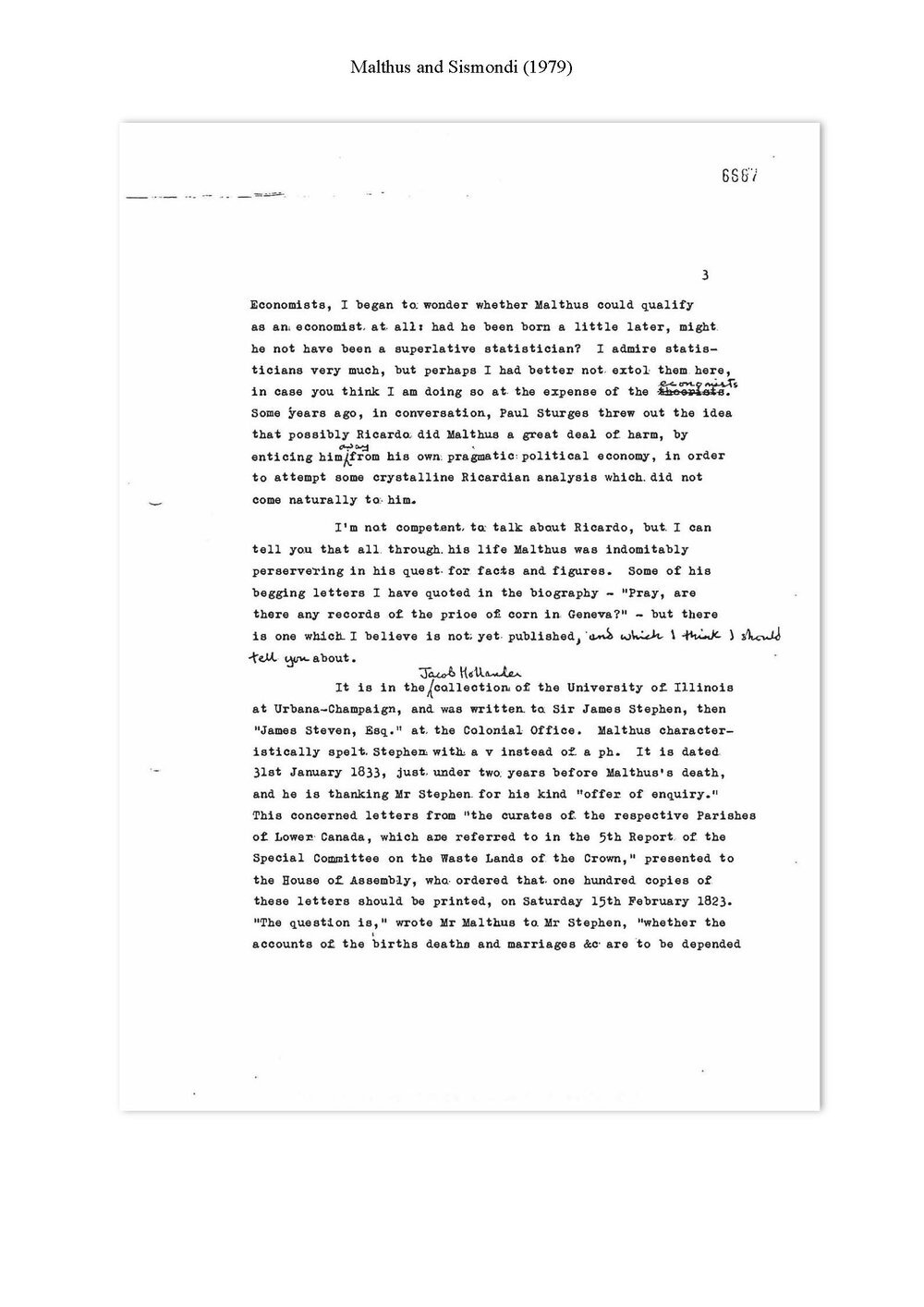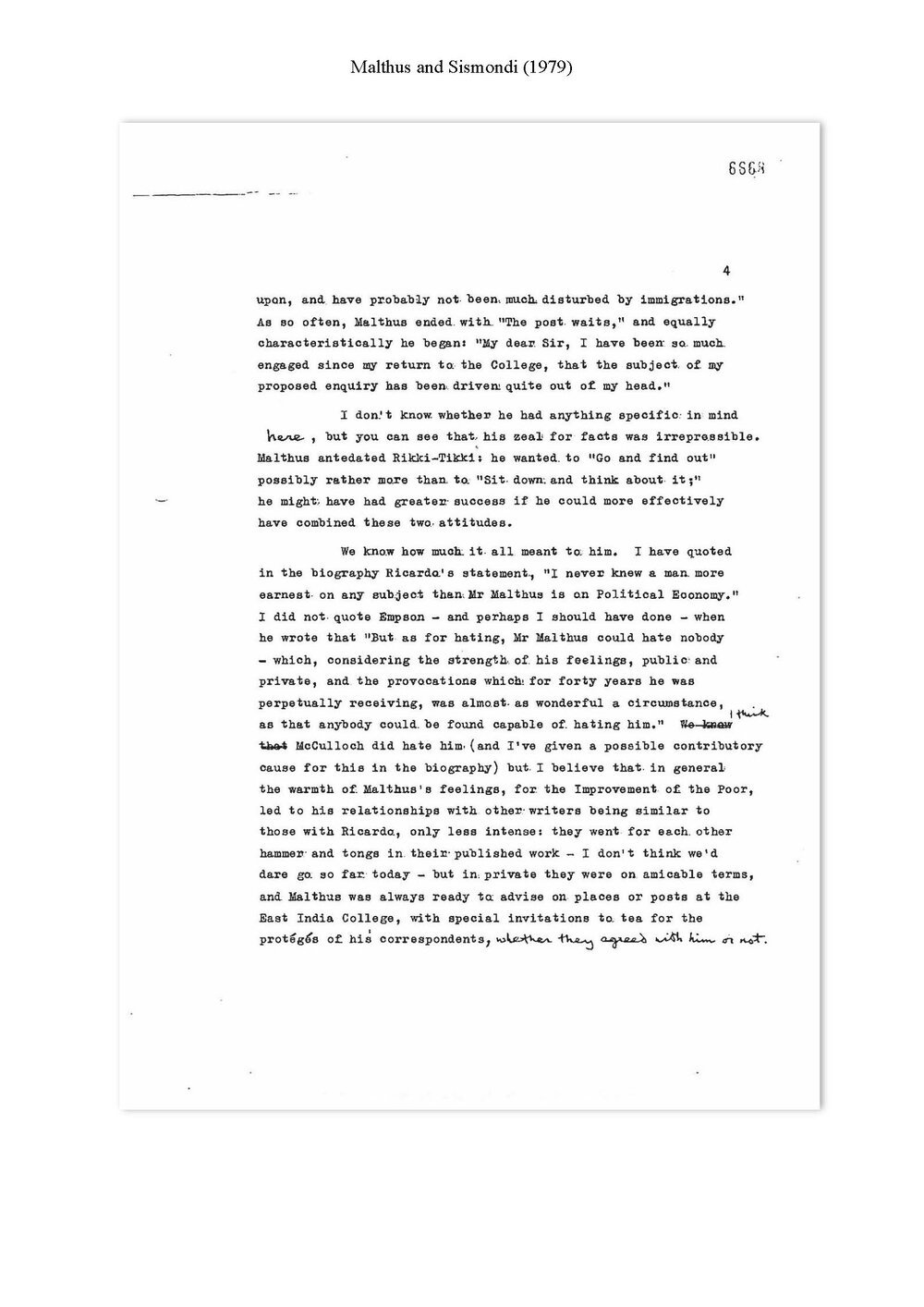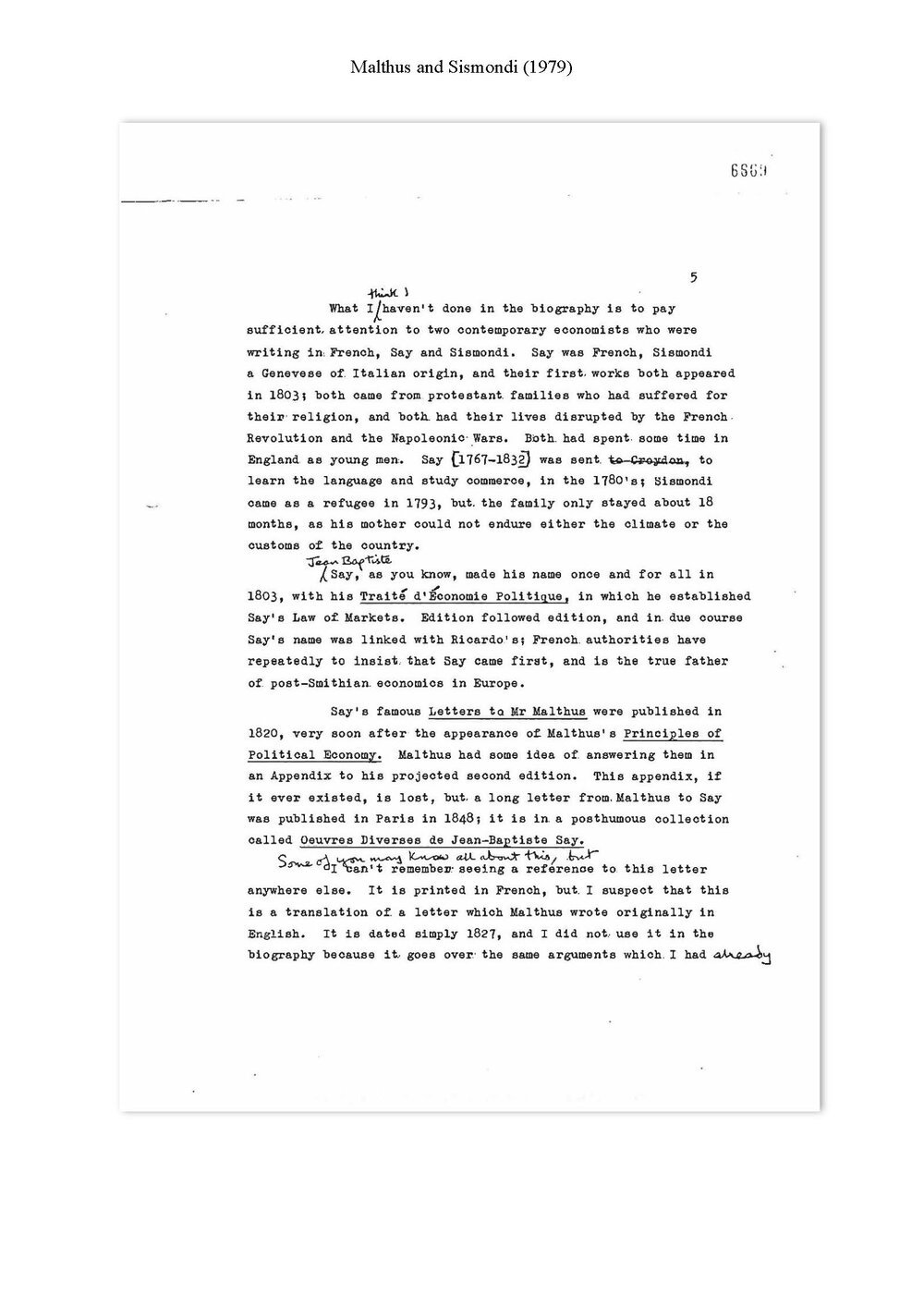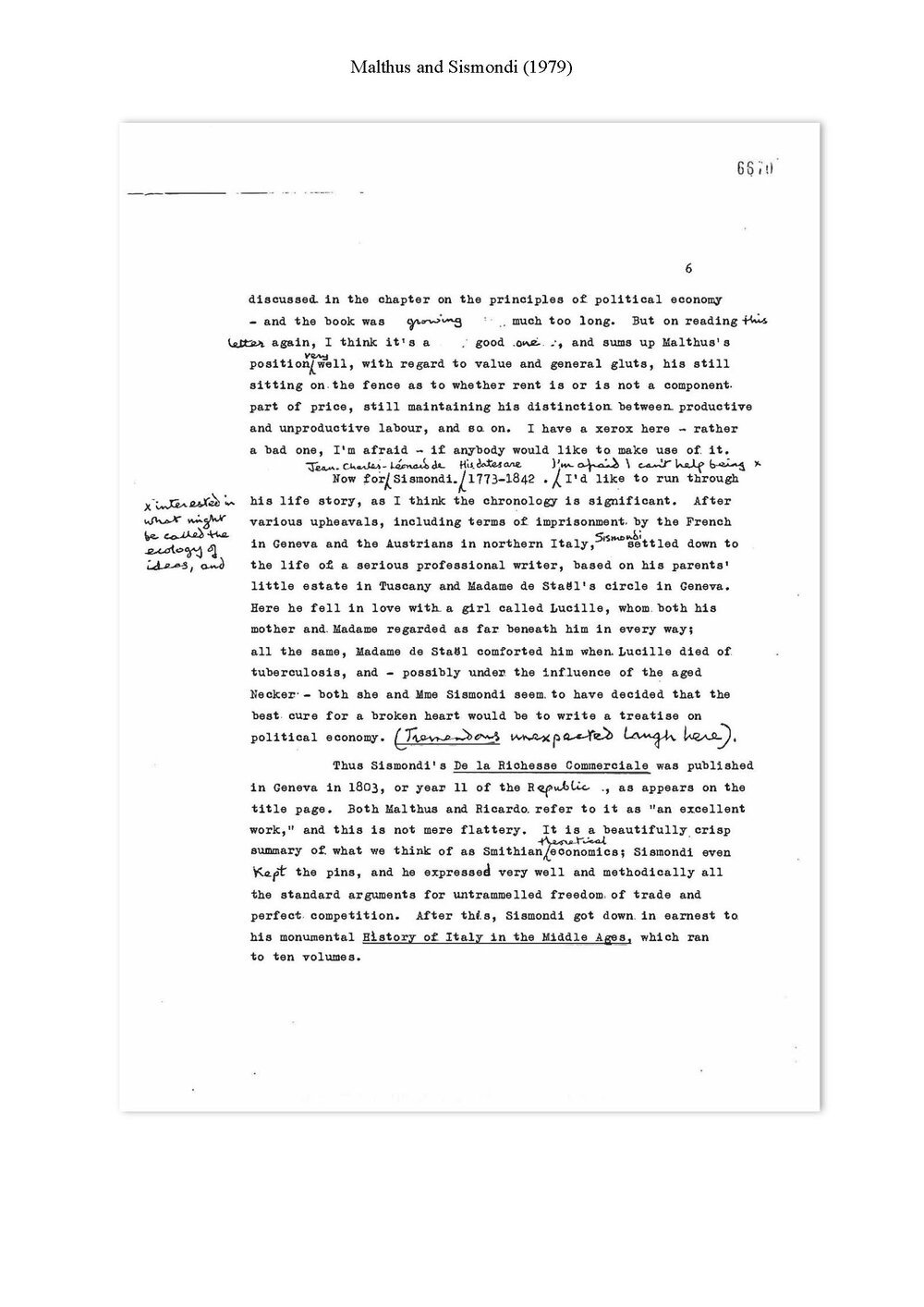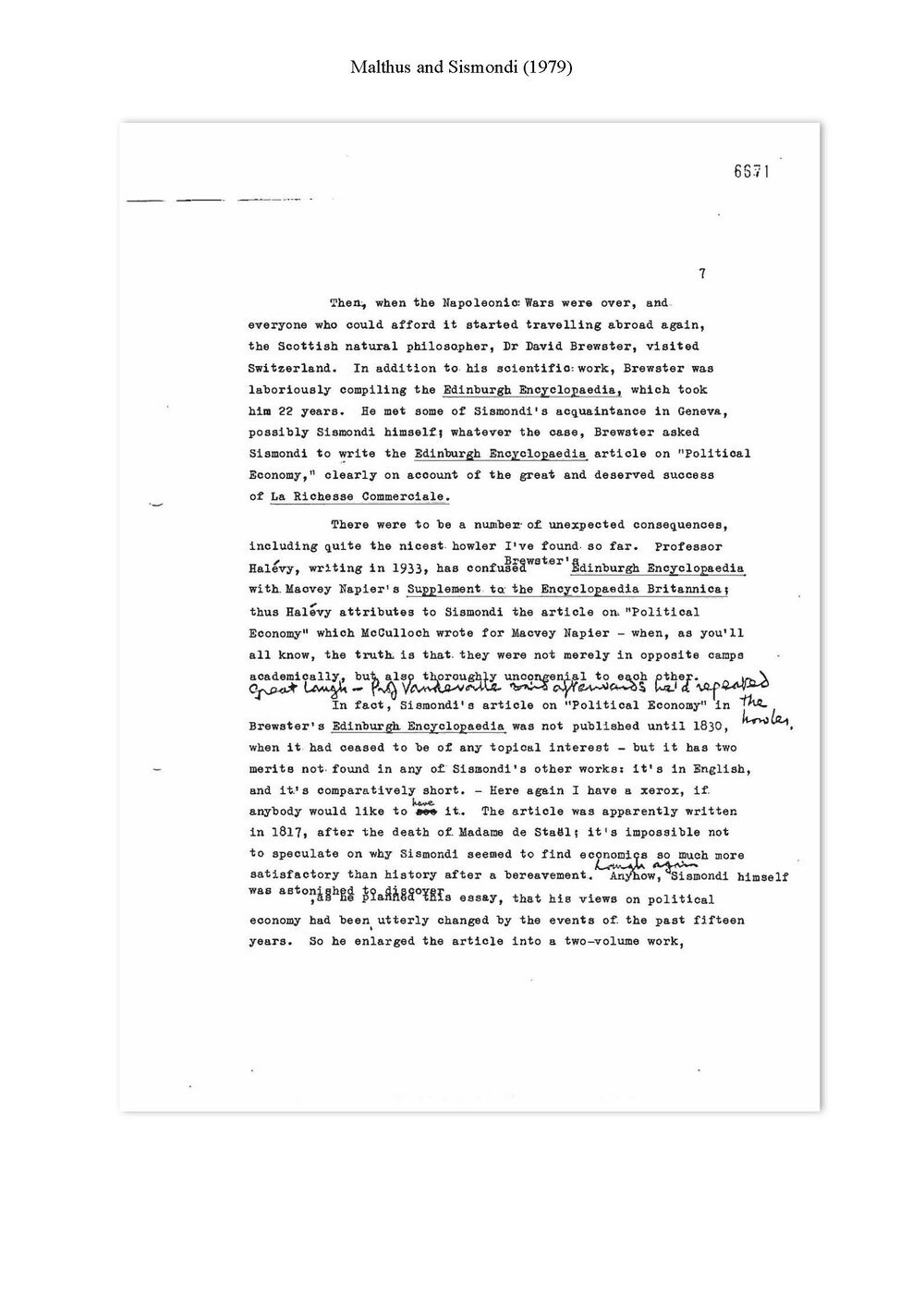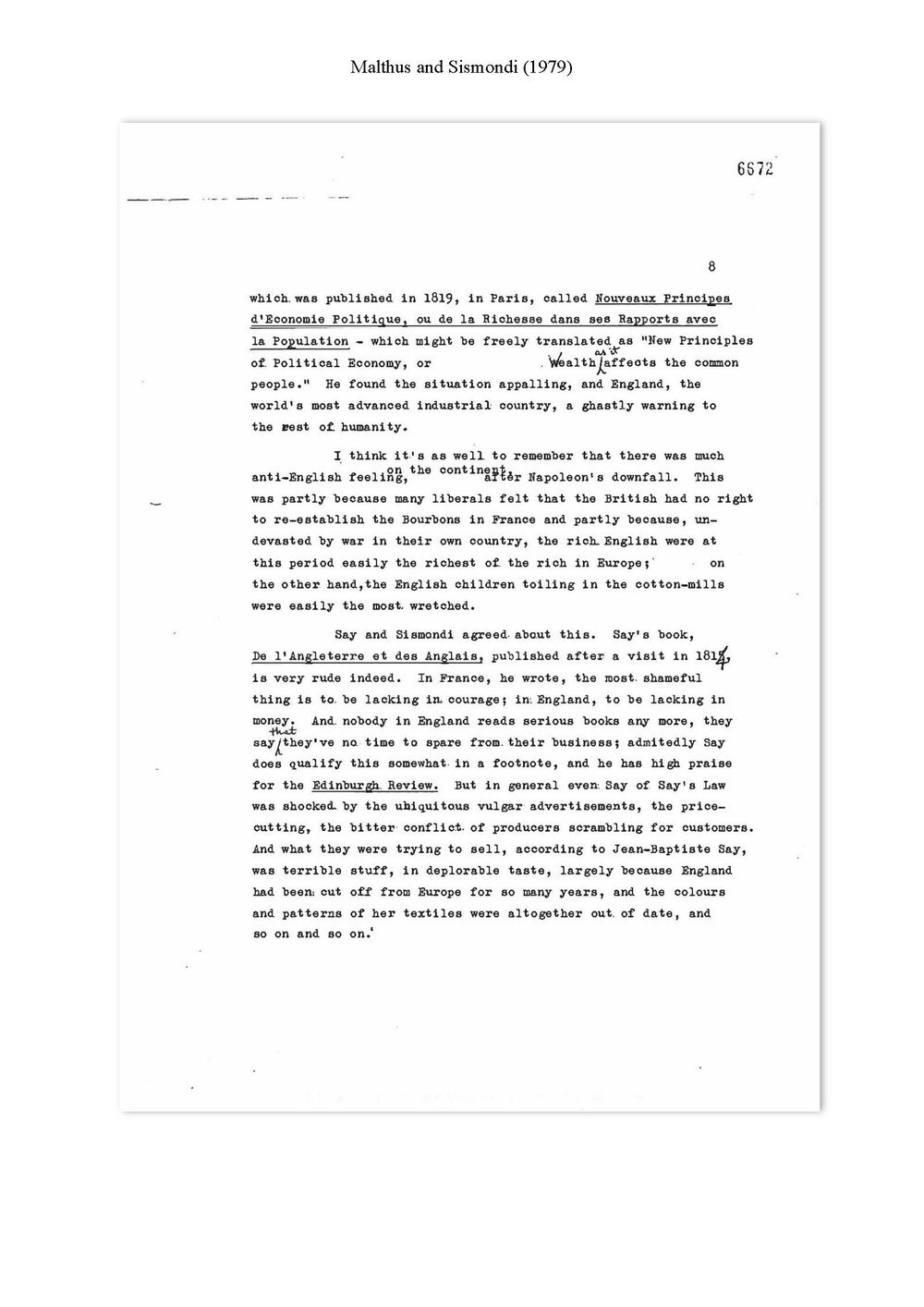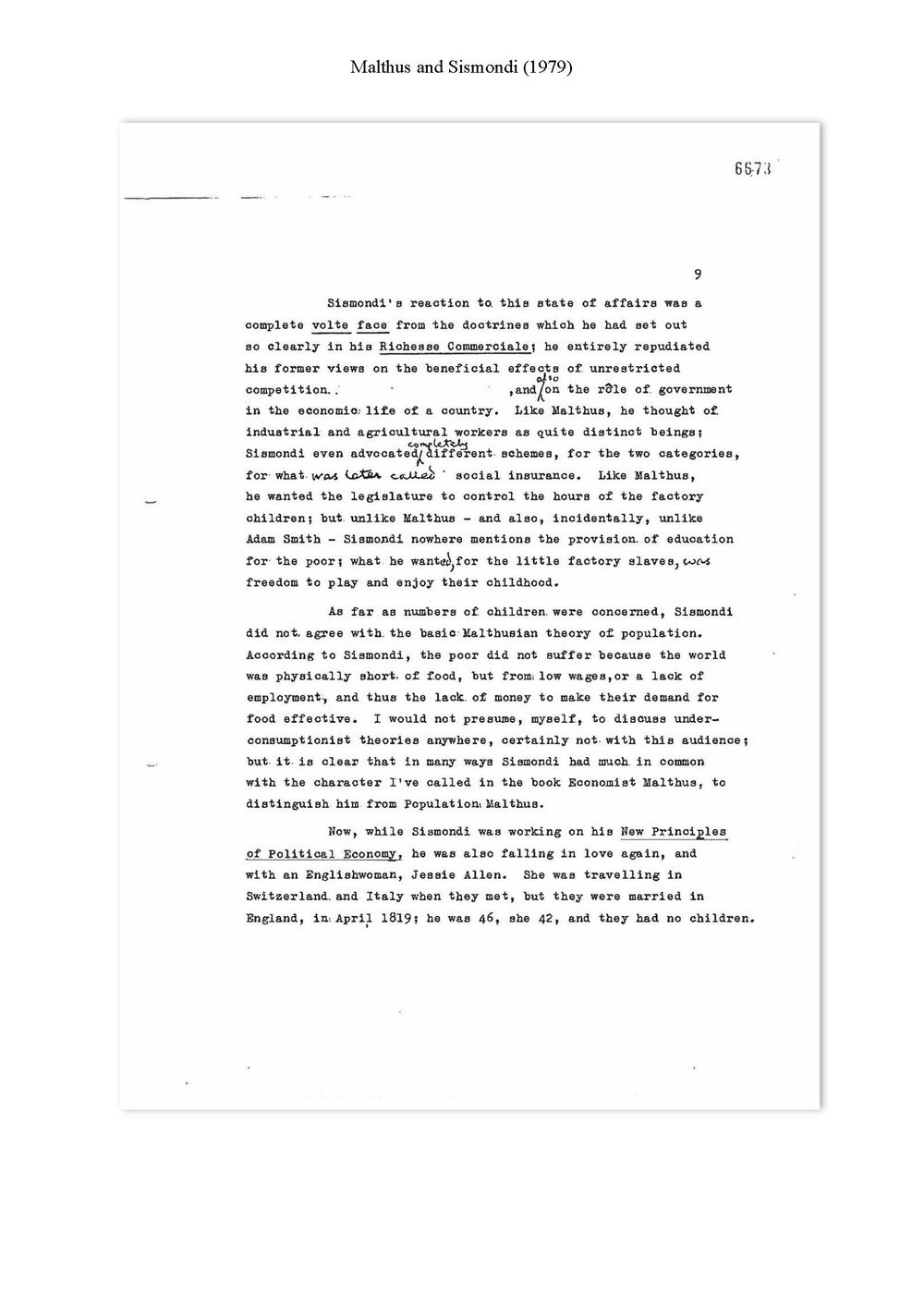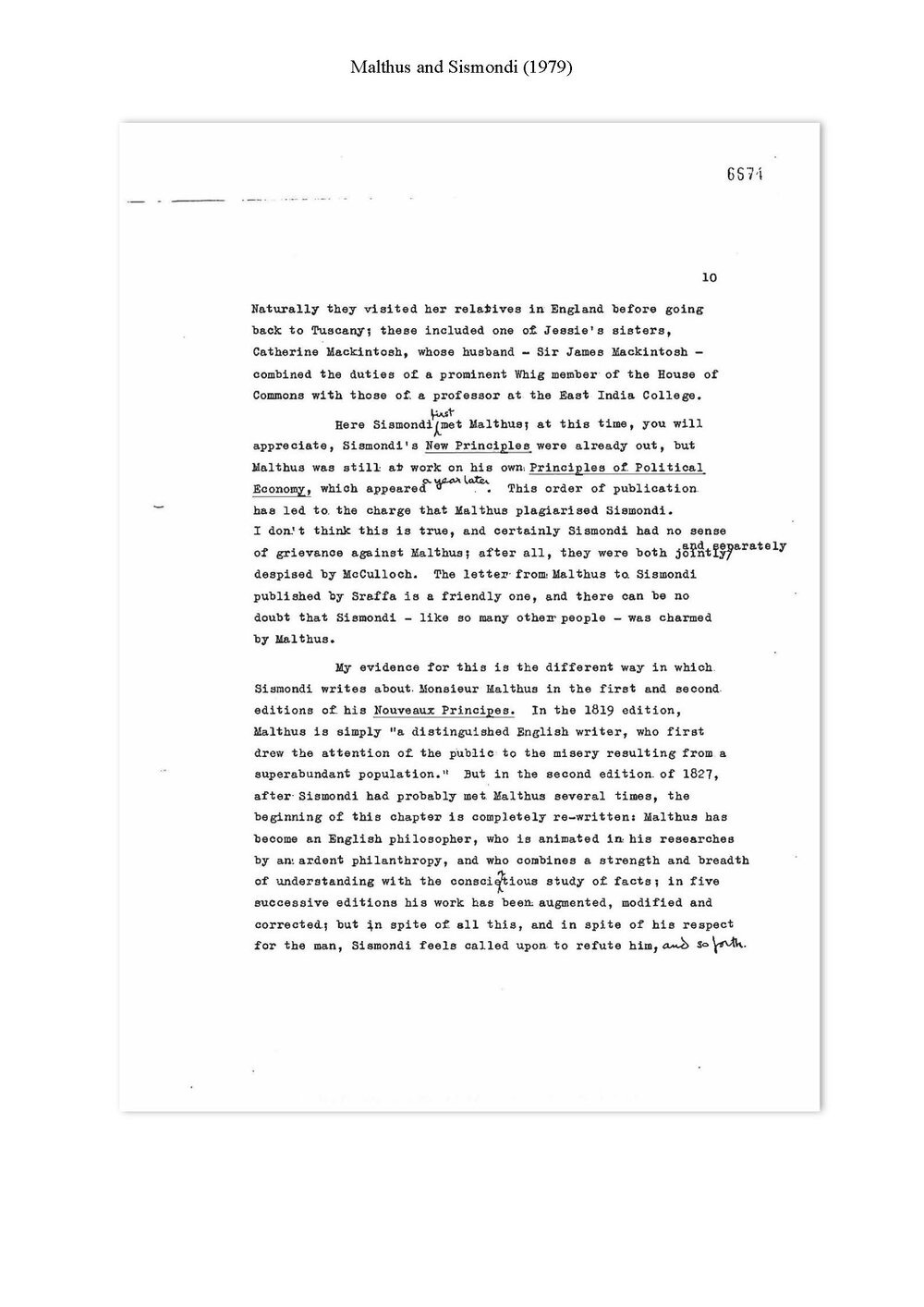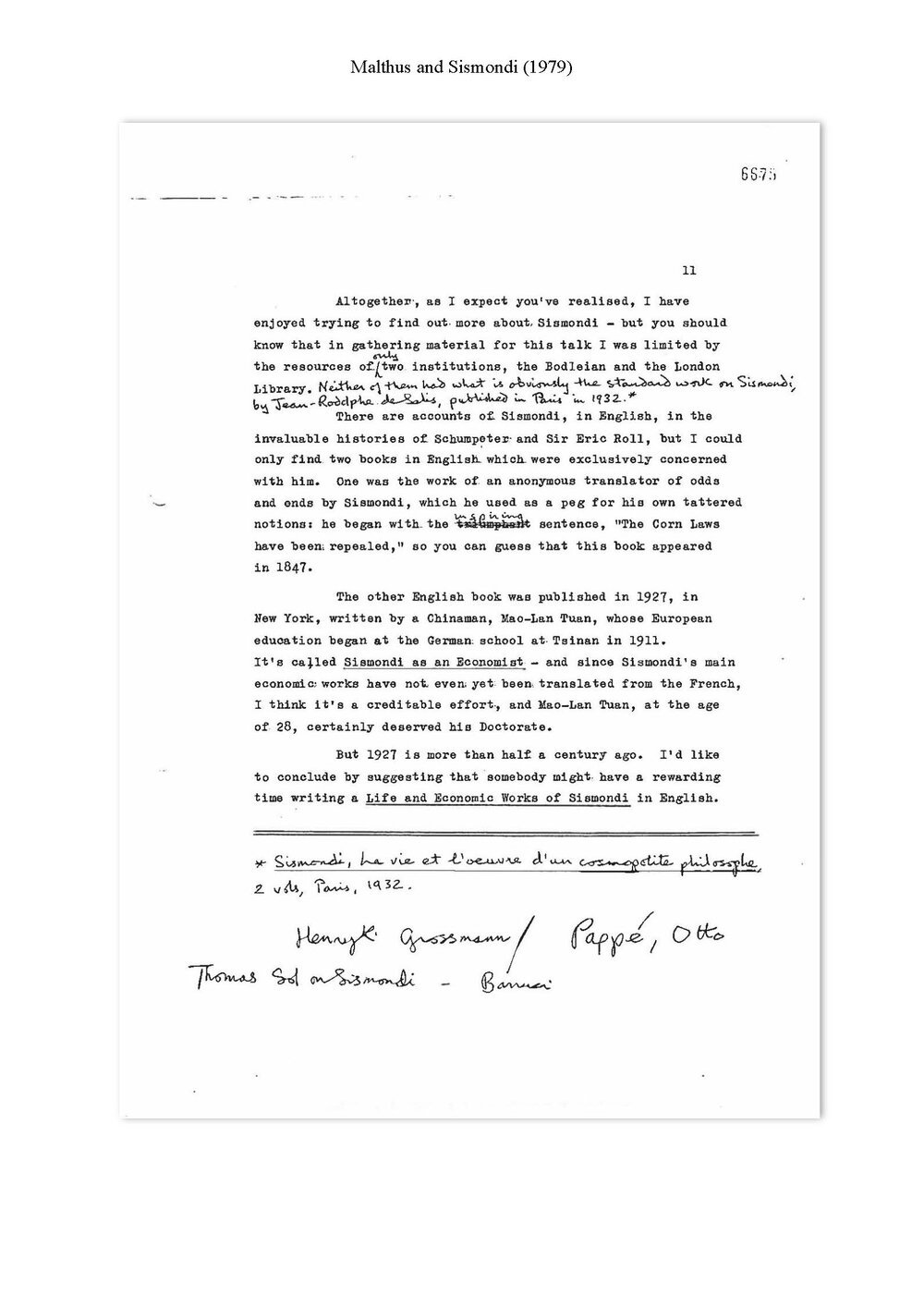Malthus and Sismondi
Item No. 17.
Patricia James
In 1979, Patricia James (1917-1987) published Population Malthus, the product of almost two decades of research into the life and times of Thomas Robert Malthus (1766-1834). It was immediately received with great acclaim and has since remained the standard biography of Malthus. Shortly after the book’s publication, James was invited to give a talk to an audience of economists and historians at the History of Economic Thought (HET) Conference at the University of Bath, but rather than speaking about the ‘Malthus’ that she knew best, the man whom she called ‘Population Malthus’, she spoke instead about ‘Economist Malthus’ and his connection to contemporary French political economists such as J-B Say and, especially, J-C-L Simonde de Sismondi. She was convinced that a comparison between Malthus and Sismondi would be a fruitful way of understanding the development of Malthus’s economic thought in the aftermath of the Napoleonic Wars, but this was not a popular view at the time. In fact, Sismondi was not a well-known figure among British historians of economic thought and very little was written about him in English, which in part explains why she had been unable to pursue this line of inquiry in her biography. Moreover, Sismondi’s main works had, as she lamented, ‘not even yet been translated into English’. As a result, her talk - aside from drawing attention to this neglected French context - was a not-so-subtle criticism of the way in which the history of economic thought was usually written. In particular, the selective hindsight of present day historians tended to obscure the fact that political economy had once been regarded - especially by Malthus - as a ‘historical, factual and - above all - practical affair.’ To demonstrate her point, she had brought with her to the conference a briefcase full of ‘Xeroxes’ and from her speaker’s podium she waived a copy of an old examination paper containing all the eminently practical questions that Malthus had posed to the young students of political economy at the East India College.
As an amateur historian without any formal affiliation with any university, Patricia James took pride - and no doubt some pleasure too - in correcting the “howlers” that she continued to discover in the professional historical literature. On this occasion, she was able to point out how Sismondi’s only English-language text, his entry on ‘Political Economy’ in Brewster’s Edinburgh Encyclopedia, had been erroneously attributed to J. R. McCulloch. And she had a Xerox ready for anyone who wished to read it for themselves. After she had finished her talk at least one historian confessed to having reproduced this error himself, and James duly noted this small victory down (see p. 7) on her speaking paper - along with every laugh that she elicited from the audience.
- L. Andersen


